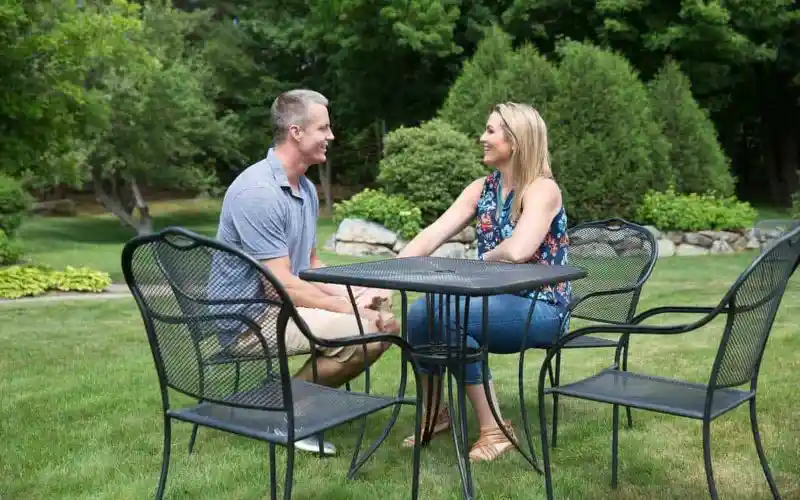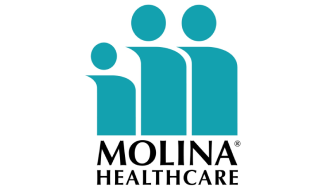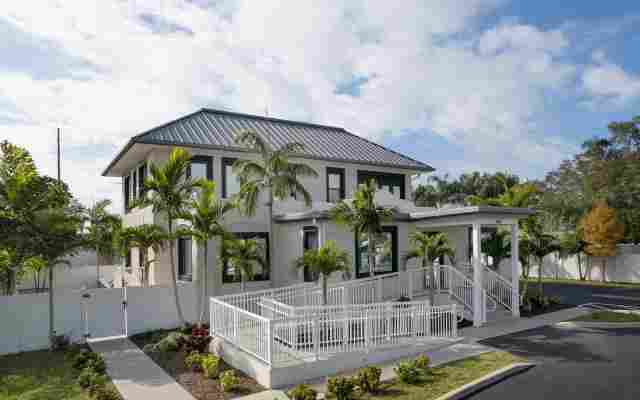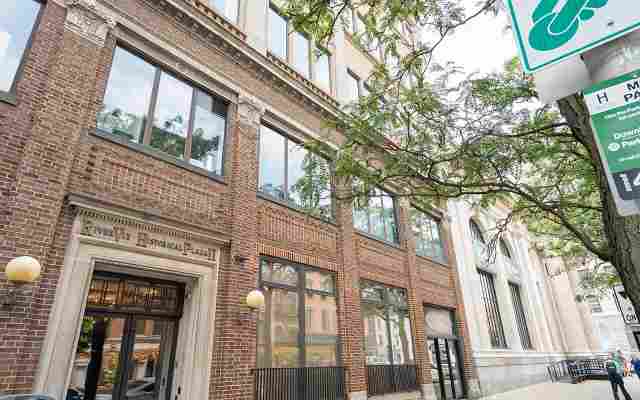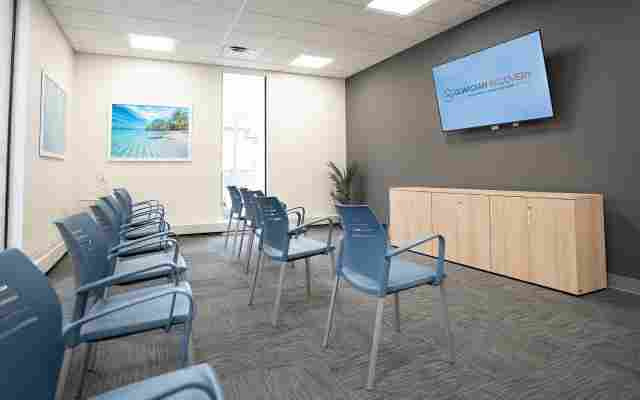
Plymouth, New Hampshire, United States
The Plymouth House
Verified
Verified
This provider’s information has been quality-checked by Recovery.com’s Research Team for accuracy and completeness, including center verification through appropriate third-party organizations.
Joint Commission Accredited
The Joint Commission accreditation is a voluntary, objective process that evaluates and accredits healthcare organizations (like treatment centers) based on performance standards designed to improve quality and safety for patients. To be accredited means the treatment center has been found to meet the Commission's standards for quality and safety in patient care.
Provider's Policy
The Plymouth House will contact your insurance provider to learn more about your benefits and how you are covered. Their Treatment Advisors will share all your insurance benefit information with you in simple language so you can understand exactly what your coverage includes. Some additional providers we work with are NH Healthy Families/Ambetter & AmeriHealth Caritas NH.
Estimated Cash Pay Rate
The cost listed here ($20,340 ) is an estimate of the cash pay price. Center pricing can vary based on program and length of stay. Contact the center for more information. Recovery.com strives for price transparency so you can make an informed decision.
Highlights from the Center
Highlights
These highlights are provided by and paid for by the center.
Customized Treatment Plans
12-Step Approach
20+ Years in Business
60 Acre Grounds
Helped 10 people on Recovery.com
About The Plymouth House
With a track record dating back to 2002, The Plymouth House provides a comprehensive continuum of care, including detox, residential treatment, and a day treatment (PHP) program with on-site housing. Their evidence-based approach uses the 12-Steps to guide personalized treatment. They have on-site psychiatrists, primary therapists, and physicians. Along with addiction, they can also treat co-occurring mental health conditions like anxiety, depression, and bipolar disorder. Their location in the White Mountains’ foothills offers 60 acres of trees, streams, and walking trails to enjoy during a structured day of treatment. They now work with most major insurance providers to make treatment more accessible.
Comprehensive, Evidence-Based, And 12-Step Focused
The Plymouth House offers an environment conducive to recovery and rest, with gender-specific housing, natural surroundings, and staff with lived addiction experience. Their clinical staff can treat substance use disorders and dual-diagnoses with medication and evidence-based therapies. These include cognitive behavioral therapy (CBT), dialectical behavioral therapy (DBT), eye movement desensitization and reprocessing therapy (EMDR), and motivational interviewing techniques. Following detox, The Plymouth House works through the 12 Steps in three main phases. Phase 1 includes Steps 1-3 in residential treatment, Phase 2 includes Steps 4 and 5 in their partial hospitalization program (PHP), and finally, Phase 3 includes Steps 6-12 in their extended care programs.
Family Involvement
Frequent family therapy sessions connect families and their loved ones throughout their time at The Plymouth House. Families can visit and participate in family therapy as well as family support groups at The Plymouth House. Their family workshops invite families on site for 2 days a month, from April to October. Relapse prevention skills extend to clients and their families.
Healing The Mind, Body, And Spirit
The Plymouth House provides holistic therapies like yoga, meditation, and fitness in on-site studios. Their property has spaces to explore, take peaceful walks, and play team games like horseshoes. On-site chefs focus on nutrition as they prepare 3 meals a day. They also offer life skills groups, helping clients with their vocational pursuits, legal matters, and academic plans.The Plymouth House offers car transports to clients in the area, and can help others arrange travel from out of state.
What to Expect When Arrive at The Plymouth House
Read More

Insurance Accepted
Provider's Policy:The Plymouth House will contact your insurance provider to learn more about your benefits and how you are covered. Their Treatment Advisors will share all your insurance benefit information with you in simple language so you can understand exactly what your coverage includes. Some additional providers we work with are NH Healthy Families/Ambetter & AmeriHealth Caritas NH.
More Guardian Recovery Locations
Clinical And 12-Step Care
The Plymouth House takes a unique approach to recovery, combining both 12-Step with clinical practices to treatment. Their psychiatrists and therapists treat and diagnose mental health conditions. They blend the 12-Steps into primary addiction treatment and dual-diagnosis care. Clients work the Steps over the course of a few months, with a 12-Step contact and 12-Steps groups as their guides.
3-Phase Recovery Program
The Plymouth House leads clients through 3 phases: Surrender and Hope, Humility and Willingness, and Transformation. These phases progress through residential, PHP, and extended care programs. Residential treatment lasts 2 weeks. The Plymouth House’s PHP program runs on site for 6 days a week. In their extended care program, clients can stay on site in their Monitor program or connect with an intensive outpatient center.
Dual-Diagnosis Treatment
The Plymouth House treats conditions like anxiety, depression, bipolar, and borderline personality disorder. Knowing addiction and mental health often co-occur, The Plymouth House employs psychiatrists and therapists to help treat clients’ mental health. Using dual-diagnosis treatment, they can offer comprehensive healing for both addiction and mental health.
A Unique Treatment Experience
The Plymouth House’s expansive property offers clients a serene space to recover. Their campus sprawls across 7 acres of their 60-acre property. On-site gardens offer clients the opportunity to garden and harvest freshly picked vegetables. The privacy and calm of The Plymouth House supports a complete focus on recovery, rest, and healing.

Center Overview
Estimated Cash Pay Rate
Young Adults
Emerging adults ages 18-25 receive treatment catered to the unique challenges of early adulthood, like college, risky behaviors, and vocational struggles.
LGBTQ+
Addiction and mental illnesses in the LGBTQ+ community must be treated with an affirming, safe, and relevant approach, which many centers provide.
Men and Women
Men and women attend treatment for addiction in a co-ed setting, going to therapy groups together to share experiences, struggles, and successes.
Midlife Adults
For adults ages 40+, treatment shifts to focus on the unique challenges, blocks, and risk factors of their age group, and unites peers in a similar community.

Treatment Focus
This center treats primary substance use disorders and co-occurring mental health conditions. Your treatment plan addresses each condition at once with personalized, compassionate care for comprehensive healing.
Treatment
Specializations
Alcohol
Using alcohol as a coping mechanism, or drinking excessively throughout the week, signals an alcohol use disorder.
Benzodiazepines
Benzodiazepines are prescribed to treat anxiety and sleep issues. They are highly habit forming, and their abuse can cause mood changes and poor judgement.
Co-Occurring Disorders
A person with multiple mental health diagnoses, such as addiction and depression, has co-occurring disorders also called dual diagnosis.
Drug Addiction
Drug addiction is the excessive and repetitive use of substances, despite harmful consequences to a person's life, health, and relationships.
Heroin
Heroin is a highly addictive and illegal opioid. It can cause insomnia, collapsed veins, heart issues, and additional mental health issues.
Methamphetamine
Methamphetamine, or meth, increases energy, agitation, and paranoia. Long-term use can result in severe physical and mental health issues.
Opioids
Opioids produce pain-relief and euphoria, which can lead to addiction. This class of drugs includes prescribed medication and the illegal drug heroin.
Twelve Step Facilitation
12-Step groups offer a framework for addiction recovery. Members commit to a higher power, recognize their issues, and support each other in the healing process.
Treatment Services
Day Treatment
In a PHP, patients live at home but follow an intensive schedule of treatment. Most programs require you to be on-site for about 40 hours per week.
Detox
Detox fully and safely removes toxic substances from the body, allowing the next steps in treatment to begin with a clean slate.
Outpatient
During outpatient rehab, patients attend a structured treatment program while continuing to live at home.
Residential
In a residential rehab program, patients live onsite, with access to daily treatment and 24-hour care. An average stay is 30-90 days.
Approaches
Evidence-Based
A combination of scientifically rooted therapies and treatments make up evidence-based care, defined by their measured and proven results.
Holistic
A non-medicinal, wellness-focused approach that aims to align the mind, body, and spirit for deep and lasting healing.
Individual Treatment
Individual care meets the needs of each patient, using personalized treatment to provide them the most relevant care and greatest chance of success.
Twelve Step
Incorporating spirituality, community, and responsibility, 12-Step philosophies prioritize the guidance of a Higher Power and a continuation of 12-Step practices.
Therapies
1-on-1 Counseling
Patient and therapist meet 1-on-1 to work through difficult emotions and behavioral challenges in a personal, private setting.
Meditation & Mindfulness
A practiced state of mind that brings patients to the present. It allows them to become fully aware of themselves, their feelings, and the present moment.
Art Therapy
Visual art invites patients to examine the emotions within their work, focusing on the process of creativity and its gentle therapeutic power.
Life Skills
Teaching life skills like cooking, cleaning, clear communication, and even basic math provides a strong foundation for continued recovery.
Motivational Interviewing and Enhancement Therapy (MET)
This approach is based on idea that motivation to change comes from within. Providers use a conversational framework that may help you commit to recovery.
Music Therapy
Singing, performing, and even listening to music can be therapeutic. Music therapy sessions are facilitated by certified counselors.
Nutrition Counseling
Nutritious food helps patients heal from within, setting them up for mental and bodily wellness as they learn about healthy eating.
Recreation Therapy
In recreation therapy, recovery can be joyful. Patients practice social skills and work through emotional triggers by engaging in fun activities.
Relapse Prevention Counseling
Relapse prevention counselors teach patients to recognize the signs of relapse and reduce their risk.
Conditions We Treat
Anger
Although anger itself isn't a disorder, it can get out of hand. If this feeling interferes with your relationships and daily functioning, treatment can help.
Codependency
Codependency is a pattern of emotional dependence and controlling behavior. It's most common among people with addicted loved ones.
Depression
Symptoms of depression may include fatigue, a sense of numbness, and loss of interest in activities. This condition can range from mild to severe.
Post Traumatic Stress Disorder
PTSD is a long-term mental health issue caused by a disturbing event or events. Symptoms include anxiety, dissociation, flashbacks, and intrusive thoughts.
Stress
Stress is a natural reaction to challenges, and it can even help you adapt. However, chronic stress can cause physical and mental health issues.
Trauma
Some traumatic events are so disturbing that they cause long-term mental health problems. Those ongoing issues can also be referred to as "trauma."
Substances We Treat
Alcohol
Using alcohol as a coping mechanism, or drinking excessively throughout the week, signals an alcohol use disorder.
Benzodiazepines
Benzodiazepines are prescribed to treat anxiety and sleep issues. They are highly habit forming, and their abuse can cause mood changes and poor judgement.
Chronic Relapse
Consistent relapse occurs repeatedly, after partial recovery from addiction. This condition requires long-term treatment.
Co-Occurring Disorders
A person with multiple mental health diagnoses, such as addiction and depression, has co-occurring disorders also called dual diagnosis.
Cocaine
Cocaine is a stimulant with euphoric effects. Agitation, muscle ticks, psychosis, and heart issues are common symptoms of cocaine abuse.
Drug Addiction
Drug addiction is the excessive and repetitive use of substances, despite harmful consequences to a person's life, health, and relationships.
Heroin
Heroin is a highly addictive and illegal opioid. It can cause insomnia, collapsed veins, heart issues, and additional mental health issues.
Psychedelics
Hallucinogenic drugs—like LSD—cause euphoria and increased sensory experiences. When abused, they can lead to depression and psychosis.
Methamphetamine
Methamphetamine, or meth, increases energy, agitation, and paranoia. Long-term use can result in severe physical and mental health issues.
Aftercare
Experience
Personal Amenities
Amenities
Special Considerations
Activities
Yoga
Yoga is both a physical and spiritual practice. It includes a flow of movement, breathing techniques, and meditation.
Professional Staff
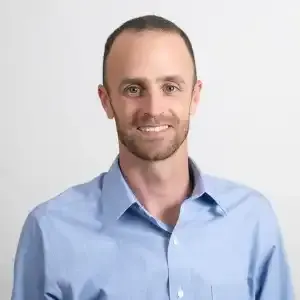
Jason Cuthbert
Executive Director
BA
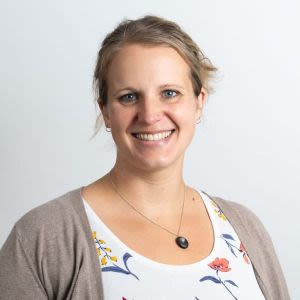
Emily Phinney
Director of Nursing
BSN, RN

Kerry Andrek
Clinical Supervisor
CADC, MS

Amy Da
Primary Therapist
LADC
View More Team Members
Learn more about The Plymouth House
Testimonial
My experience at The Plymouth House was like no other treatment facility I've been to. It was life changing. The reason I have what I have today is because of the caring staff guiding me to be a good person and a woman in recovery. I HIGHLY recommend anyone who is struggling or has a loved one who needs help to go to The Plymouth House.
Madison
Accommodations
Food & Nutrition
Treatment
Value
Pros
- Beautiful Location (34)
- Luxurious Accommodations (12)
- Excellent & Effective Treatment Programming (31)
- Personalized (23)
Cons
- Not Enough Time With Therapist (3)
- Poor Cell Service (2)
- Uncomfortable Accommodations (2)
- Isolating (2)
See More
Bartender
Salon Owner/ Mother/Wife
Assistant Program Manager
Chef
Andrew
We love hearing about your treatment experience
Help individuals and families seeking treatment by sharing your first-hand experience with this treatment provider. Review Guidelines.











